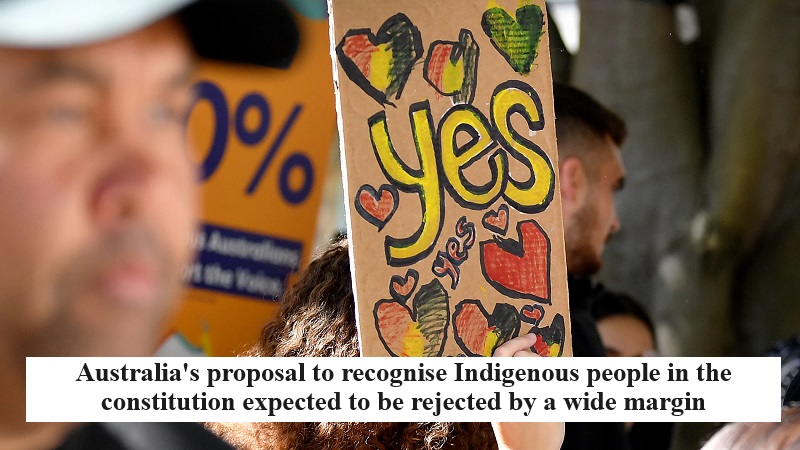
Australia’s efforts towards reconciliation with the Indigenous population are on the verge of a significant setback, as the anticipated outcome for a proposal seeking to recognize Indigenous people in the country’s constitution seems poised for a resounding rejection on Saturday, October 14.
As the polls opened in the Oceania region, Australians embarked on casting their votes for a referendum centered on Indigenous rights. The Australian broadcaster ABC reports that three states – New South Wales, Tasmania, and South Australia – are expected to overwhelmingly reject the proposal by voting “No.”
This referendum symbolized a glimmer of hope for Aboriginal and Torres Strait Islanders, whose historical struggles span centuries. They have confronted a multitude of challenges, ranging from disproportionately higher rates of illness and premature mortality to a disproportionate rate of imprisonment when compared to their more privileged white counterparts.
It is imperative to recognize that in Australia, a successful referendum necessitates the approval of at least four out of the six states, in addition to a majority vote at the national level.
The looming rejection of this proposal carries profound implications for the Indigenous population’s quest for constitutional recognition. It underscores the enduring divide within Australian society when it comes to addressing the rights and recognition of Indigenous peoples, who have endured marginalization and discrimination throughout history.
This outcome also serves as a reminder of the complexity and sensitivity of the issues surrounding Indigenous reconciliation. Despite the grim outlook, it is essential to acknowledge that the quest for recognition and equity for Indigenous communities will persist, even in the face of adversity. The rejection of this proposal does not extinguish the ongoing dialogue and activism surrounding Indigenous rights and reconciliation in Australia. It serves as a call to redouble efforts and foster deeper conversations aimed at achieving a more equitable future for all Australians.

Post Your Comments